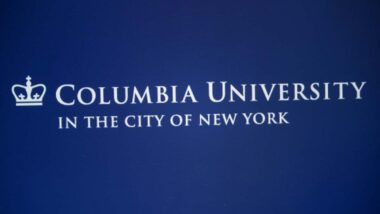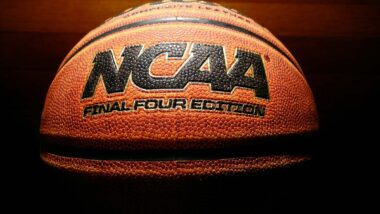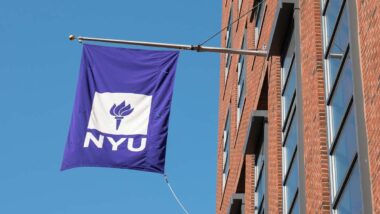Top Class Actions’s website and social media posts use affiliate links. If you make a purchase using such links, we may receive a commission, but it will not result in any additional charges to you. Please review our Affiliate Link Disclosure for more information.
A Barnes & Noble textbooks class action claims several large companies are conspiring to monopolize the college textbook market.
Florida resident Julio Lopez alleges that college bookstores run by Barnes & Noble and Follett are charging students exorbitant prices for textbooks “with no legitimate justification” through a program called Inclusive Access.
Nearly two-thirds of U.S. college and graduate school students attend institutions where one of those retailers operates the campus bookstore, according to the Barnes & Noble textbooks class action lawsuit. In addition, the three publishers named as defendants — Cengage Learning, McGraw Hill and Pearson Education — hold a combined share of between 80 percent and 90 percent of the textbook market.
Until recently, college students have had numerous options for purchasing textbooks. They could choose new or used books, or even electronic versions, from a variety of sources including on- or off-campus bookstores, mail order, Amazon, eBay, and others.
Facing ever-increasing competition from those secondary sources, the defendants allegedly developed and implemented Inclusive Access as a scheme to boost their profits. This plan has unfolded over the course of several years, according to the plaintiff.
In 2016, the three publishers named in the suit formed the Educational Publishers Enforcement Group. While its supposed purpose was to fight textbook counterfeiting, the group has served as a way for the three publishers to collude in imposing Inclusive Access, the Barnes & Noble textbooks class action lawsuit argues. For example, it states, guidelines set by EPEG limit which retailers are allowed to sell textbooks, thus limiting the supply. This, in turn, allegedly gives the three publishers “a captive market” where they can charge higher prices.
Adding to this, in April 2019, the National Association of Collegiate Stores reportedly voted to exclude any textbook retailers that operate off-campus. This effectively disqualified all booksellers except Follett, Barnes & Noble, and the colleges themselves, the class action lawsuit maintains. As a result, NACS no longer represents the interests of all textbook retailers — only the defendants’.
And now, with the Inclusive Access program taking hold at colleges nationwide, the defendants are benefiting in a big way, the plaintiff claims.

The defendants ensure their monopoly by excluding all other booksellers from the Inclusive Access program, according to the plaintiff.
“When retailers other than the Retailer Defendants or on-campus bookstores run by universities have approached the Publisher Defendants and asked to purchase Inclusive Access materials to sell to students, they were refused,” the Barnes & Noble textbooks class action lawsuit maintains.
“The Publisher Defendants either stated that they had an exclusive arrangement with the Retailer Defendant or college-run on-campus store, or that the Inclusive Access materials could not be made available in a format that would allow those off-campus or online retailers to resell them.”
This practice prevents competition and thus keeps the textbook prices inflated, the filing argues — even in cases when exceptions had to be made.
“In the few instances where the Publisher Defendants did sell Inclusive Access materials to off-campus retailers, often only after legal intervention, the materials were sold at a substantially higher price than they were sold to the Retailer Defendants or to college-run on-campus bookstores,” states the Barnes & Noble textbooks class action lawsuit.
“This resulted in the off-campus retailers being unable to sell the materials at a competitive price and unable to compete with the Retailer Defendants or college-run on-campus bookstores for sales.”
The plaintiff is claiming unlawful agreement to restrict trade; monopolization; attempted monopolization; and conspiracy to monopolize. He is seeking treble damages and injunctive relief, as well as court costs.
“Inclusive Access does not have any advantages for students,” he states. “Students pay higher prices, are forced to purchase electronic materials even if they prefer print, and they receive access to online materials with an expiration date as opposed to being able to save course materials for future reference or sell them for money after the class is over.”
Have you been forced to purchase Inclusive Access for a college course? Share your thoughts in the comment section below.
Lopez is represented by James C. Shah and Eric L. Young of Shepherd, Finkelman, Miller & Shah LLP.
The Barnes & Noble Class Action Lawsuit is Julio Lopez, et al. v. Barnes & Noble College Booksellers LLC, et al., Case No. 3:20-cv-06152, in the U.S. District Court of New Jersey.
ATTORNEY ADVERTISING
Top Class Actions is a Proud Member of the American Bar Association
LEGAL INFORMATION IS NOT LEGAL ADVICE
Top Class Actions Legal Statement
©2008 – 2024 Top Class Actions® LLC
Various Trademarks held by their respective owners
This website is not intended for viewing or usage by European Union citizens.
















5 thoughts onClass Action Claims Barnes & Noble Textbooks Conspiracy
What is not REALLY being said is that some students are paying for courses twice because of this setup. Students pay tuition, which should include access to course content and the teacher. Then they pay for a “textbook” (digital or print.. does not matter). If a teacher is using a textbook that is integrated with the vendor courser content, you MUST pay for the content AGAIN or they cannot take the course. Here is a scenario… if siblings both pay for the same class, with the intent of sharing the textbook to save money, that will not fly. Students MUST pay again to access course content via an “access code” or they cannot access the content they already paid for when they paid tuition. Here is another scenario… A wife pays tuition and for the content access code with digital textbook thinking she will be able to save money when her husband takes the same course next semester… Nope. The husband must pay tuition and for the course content and for the textbook because they must have their own ID tied to the access code.
Add me my college makes us buy through them for my classes
I am currently working on a 2nd Masters and have encountered this at each college and university I have attended. I could buy a house for what I had been forced to overpay in books, supplies and programs.
Most assuredly interested. Encountered this the last semester attended. The “PURCHASE” expired after 6 months and you no longer had access. It was most difficult to learn via an ebook. Can’t flip pages.
Definitely interested . The college I attended did this and forces students each year to buy the new version of the books which are only available thru them.